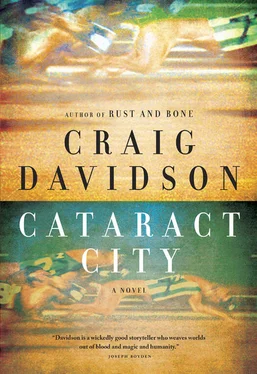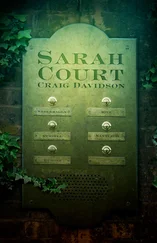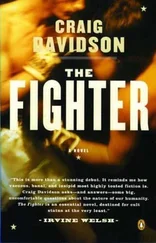At last the tracks rose up an incline into the forest. Why had Drinkwater chosen this entry? Had he heard us coming and panicked? Or was he lying in wait a few hundred yards past the treeline?
I pointed to an orange trail marker spiked atop a rusted pole. “He followed a trail. Hiking path, maybe an old surveyor’s line.”
“You figure he knows where he’s going?”
“He’s done plenty of business on this river.”
Pins and needles shot up my spine. We’d been searching for forty-five minutes. The river snaked eastward, its whiteness dissolving into the remote darkness of the horizon. Moonlight ghosted the trees, shining on their ice-encased branches — but the light didn’t touch the forest floor, which was carpeted in smooth-running shadows. Apart from the hum of the muffler, the silence was enveloping.
I thought about how we forget there are still places on earth where you can move so easily from the safety of known roads to the solitude of nature. If you’re not paying attention, you might not even know you’ve crossed that line.
“Go on,” I said. “He’s running, not waiting.”
“He’s still Drinkwater.”
“You’d rather turn back?”
Dunk opened the throttle, carrying us over the river’s lip and into the woods. Drinkwater’s tracks veered wildly through the snowpack. These trails hadn’t seen use in years. Trees here rose high into the night, oaks and birches nourished by the alluvial silt kicked up from the river. Their trunks were furred with old man’s beard that shone with hoarfrost.
We nosed into a tributary. Skeins of ice shattered under the treads with the sound of busted light bulbs. Drinkwater’s tracks disappeared. Maybe he’d cut further down the inlet?
Duncan switched off the engine. The summer woods were host to many sounds, but in the winter woods, sounds were rare, and those that remained took on a haunting note: the hoot of snowy owls, the green-stick snap of a tree limb under the weight of snow, the booming crack of ice fissuring under tremendous pressure.
Faintly, the whine of a motor — to the north, further down the inlet.
Duncan forded the tributary, which branched eastward, narrowing, hemmed by shaggy spruces. Soft, hand-shaped spruce fronds lapped our shoulders.
We surged into a snowy chute that tapered to a flat expanse. Drinkwater’s tracks cut straight ahead, aiming for the thick forest looming against a scrim of winter sky. Duncan charged full-bore, the muffler’s silencer failing, the motor issuing a band-saw buzz. The night moved as winter nights so often do: in soft crests and eddies, plays of moonlight and starlight. Soon Drinkwater’s tracks bent sharply — so sharply that they seemed to disappear. The snow was abruptly trackless.
I barely sensed the threat.
Years later I’d return to this spot, a steep decline that lay some four hundred yards shy of the forest. It fell sheer, almost twenty feet straight down. It would take me some time to locate, even in daylight. But then, at night, running flat out, it was nearly impossible to see: the snow and shadows made it look as if the land continued on an even plane.
Too late, I sensed the outcropping where the snow crusted in a ragged edge. Dunk squeezed the brake levers instinctively but our momentum was unstoppable. We went over the crest at thirty-five miles per hour. A giddy weightlessness gripped my guts, the kind you feel on a roller coaster the instant before the tracks drop from under you.
The skidoo free-fell, then slammed into a powdery drift. One tread bit, differentials howling, metal shearing apart and spitting off in sharp spears. What I remember of the impact exists in polar flashes. My chin slammed into Duncan’s shoulder, teeth colliding with a brittle snap . My knees popped as I was jolted off, following a broken flight path. With dreamlike clarity I saw Duncan’s chest crush the handlebars; his neck snapped forward, face bashing the hood. His body kicked over the bars and he was sailing free, his arms pinned to his sides like a man kicking furiously towards the water’s surface.
I came to with pain singing down my arm: an aria, the type sung by sopranos with voices capable of shattering crystal stemware.
I lay in a drift. I blinked away the flaming birds that flocked before my eyes, focusing on a pine tree to my left. Had I hit it, my skull would’ve been crushed. Pulling my knees in, I struggled to stand. At this I failed.
I held my arms out. The right was heavy. I let it fall a few inches. A rivulet of blood ran out of my parka sleeve. The pain was duller now, its knife edge gone.
What had happened? I remembered the headlights falling off the cliff, remembered clinging to Duncan tightly, figuring — with that childlike hope that attaches itself to fearful moments — that if I held on to him the way I had as a boy, everything would work out.
“Dunk? Man, you okay?”
Silence. Running the fingers of my left hand over my right arm, I could feel a small surgical incision in the fabric above the elbow. I prodded two fingers through the slit until they met something soft, warm, pulpy. Hinging my arm at the elbow, I felt something stuck in my flesh near the bone.
Shock : this, too, came from far away. I must be in shock. When I pulled my fingers out they were chalk-white to the second joint, after which they turned red.
“Dunk?”
Fear seeped into my chest when this second call went unanswered. I noticed that a fingernail was ripped off my right hand. My phone! Patting my pocket, I felt its comforting shape. But when I dug it out, its face was spidered. The liquid crystal leaked through the cracks like oil.
A fingernail-slice of moon hung over the pines. The only light came where it reflected off veins of quartz in the cliff face: these shone like rivers on a map. The skidoo lay twenty yards off. One tread had shredded off; shards of metal winked in the snow.
That’s when I saw him. Duncan lay thirty-odd feet beyond the wrecked skidoo. His body was heaped near a rocky outcropping. Fear thrummed down my neck.
Be okay — god damn it, you be okay, Dunk .
I staggered around the skidoo and drew near to Duncan. Now I saw that it wasn’t rocks he was sprawled across: it was bare bracken, as black as obsidian. He rolled over, groaning weakly. His face appeared to be covered in molasses. His nose had exploded. The cartilage was shoved off to the right and blood bubbled out of his nostrils.
“Breathe through your mouth,” I said. “Your nose is … bad.”
Duncan must’ve heard me; he quit bubbling. His limbs jutted at the proper angles: no green-sticks or feet facing the wrong direction. His hands were a mess, skin rasped off the remaining knuckles. One of those hands rose instinctively towards my face, moved over my chin, the pits of my eyes. Satisfied, Dunk let it drop back into the bracken.
“Jesus, Owe. I’m sorry.”
“It’s okay. I didn’t see it either. Your nose …”
“Bad. You said that already.” He pawed at his face and said, “Yeah, it’s bust … it’s been bust worse.”
I had a hard time believing that. “We got lucky. The good Lord watches over drunks, fools and skidooers.”
Duncan rose to his knees, then stopped abruptly, clutching at his chest.
“What’s the matter?”
His fingers crawled over the front of his parka. “I don’t know … That hurt, though.”
I couldn’t recall a time Duncan admitted that anything hurt.
“Can you stand?”
Duncan did. “You said something about your arm?”
“It’s fine for now. Do you have a phone?”
He shook his head. “I was meaning to get one, but …”
We hobbled to the skidoo and hunted through the emergency satchel: two flares, a Leatherman tool, protein bars, duct tape and a medical kit. No phone.
Читать дальше












